Present in all the articles in the marketing, IT and now mainstream press, the metaverse is trendy.
But behind this term and the examples presented, what is it really like for brands?
One industry in particular has already invested in these immersive spaces represented by the various platforms present in the metaverse: Zepeto, Sandbox, Roblox, Decentraland…
Beauty, through numerous brands, is now trying to master the cultural codes of these universes.
Indeed, originally composed of gamers, these brands are far from the cultural universe of gaming.
A universe where game time is closely intertwined with daily life and can be played anywhere.
This very demanding public is joined by the Z and alpha generations, which are closer to beauty brands and are very tech addicted.
These new universes offered by the metaverse have become a place of game and expression that is highly prized by these generations of consumers.
The proof is that 53% of beauty brand fans have played or downloaded a free game.
33% of Gen Z who are on social media platforms have purchased digital fashion on the metaverse.
75% of Gen Z have bought a digital item in a video game and 45% of Zs imagine metaverse as a shopping mall.
52% of them say they are willing to pay up to $49.99 for a virtual product and 60% think that brands should sell their products in the metaverse.
41% of GZs think that brands should sell in metaverse, digital products (Digital Fashion, NFT…) or real products.
Some consumers are already present in these universes or are eager to go there.
However, what does this sector represent economically?
Metaverse games currently represent 4% of the $300 billion video game economy.
The growth prospects are immense according to Morgan Stanley, which estimates a potential revenue of $50 billion for luxury brands.
2021 was a banner year for platforms such as Sandbox, Decentraland, Cryptovoxels and Somnium, whose total product sales reached $501 million.
In January 2022 alone, sales reached $85 million.
But what sales and experiences does this figure represent?
For beauty brands, it’s no longer a matter of pushing for customer acquisition via paidmedia, but of “launching a religion for their community!”
In metaverse, everything is about adherence to a universe: consumers love a story and want to add their own character to it.
The brand’s universe is then co-constructed with customers, as is the case for these beauty brands:
Escada, which has chosen the experiential.
For example, the virtual space created by Escada Fragrances for the launch of their new perfume. To market Fairy Love, the German brand designed a complete virtual space on the Roblox platform with the agency Pavillon Noir.
The concept is simple: a world dotted with reds and hearts in the colours of the new fragrance’s bottle, inspired by the magical world of funfair attractions. Visitors are immersed in this very special atmosphere, and are invited to play mini-games giving them access to collectibles (virtual objects) in the colours of the new product, or even to win a bottle of the perfume (physical, of course).
They can then use these collectibles to dress up their avatar, increasing the campaign’s reach beyond those who have visited Fairy Love Land.
Rook Perfume, co-creation
An other example is the British perfume house Rook Perfumes, which is creating a new fragrance called “Scent of the Metaverse”.
In order to keep with the collaborative spirit of the metaverse, it is creating what it calls the first “fragrance DAO” (decentralised autonomous organisation), in which participants buy a non-fungible token (NFT).
Buyers of the 100 NFTs from Scent of the Metaverse will participate in a four-month experiment, consisting of conversations on the Telegram application, learning sessions, interactive games, journeys through the Metaverse and – if the COVID allows it – physical events.
At the end of the experience, NFT holders will receive a bottle of the perfume (with a collaboratively designed NFT of the label).
They will also receive co-creation rights to the fragrance, which will earn them royalties on fragrance sales if it goes on sale.
Prada, the virtual muse
For the first time in the world, Prada presents Candy, a virtual muse who is also the face of a fragrance.
Born out of a distortion of reality, Candy is ethereal, driven by a constant need to question, connect and evolve.
Inspired by the world of TikTok, a series of short films directed by Nicolas Winding Refn and captured by photographer Valentin Herfray depict the encounter between a physical perfume, Prada Candy, and a virtual muse.
Estée Lauder, the metaverse selling
Maison Too Faced, “a unique retail experience consisting of a 360° virtual environment”.
Shoppers are invited to discover a fully branded and playful world of beauty shopping, with interactive gardens filled with hero products, branded mascots to interact with, as well as the ability to play games to capture discount codes
Clinique, NFTs
NFTs inspired by iconic products: Black Honey and Moisture Surge, where consumers who are members of the Smart Rewards programme are encouraged to share optimism-related content via Instagram, TikTok or Twitter.
The prize is an annual assortment of products for the next ten years, as well as a copy of the 3 Clinique NFTs available
More than 15 brands are already in the metaverse to test and experiment with retail 3.0.
What can we deduce from these first attempts about the conditions for success in the metaverse?
Everything hinges on 4 fundamentals:
- the Fanbase
- Usage
- Interactivity
- Connection with reality
The predictable consequence is the construction of a disintermediated economy.
However, not everything is so simple.
Indeed, the main obstacle to current experiments is the technology used:
- The loading time and the weight of the objects.
- The consumer does not necessarily have a gaming computer or a state-of-the-art game console.
- Some recent failures show that the use must be easy and without technological blockage.
In the future, brands should:
- Rely on their own metaverse to multiply live shopping sessions because of interoperability issues
- Virtualise real products for sale
- Virtualise real products for virtual use
- VIPise a customer relationship with NFT access
- Offer events with interactivity with the muses
- Place their products on immersive experiences
- NFT co-creation of new products with consumers + personalisation
- Develop playful and immersive experiences
- Increase product testing
- Increase data qualification
These 3.0 opportunities, particularly for beauty brands, must be acculturated to the codes of these new immersive universes.
These are particular universes that need to be understood to avoid the viralisation of badbuzz on failed experiences or simply without added value.
Frédéric Lefret
CEO Immersive Talent Agency
Member of the V-EXPERIENCE Lab at Iscom



